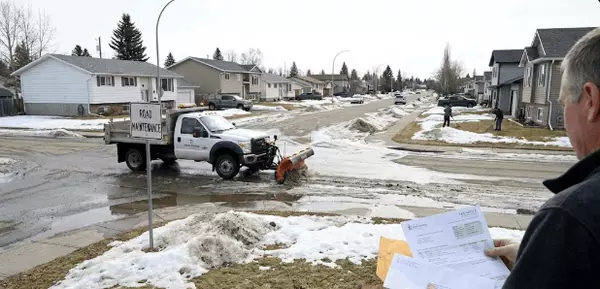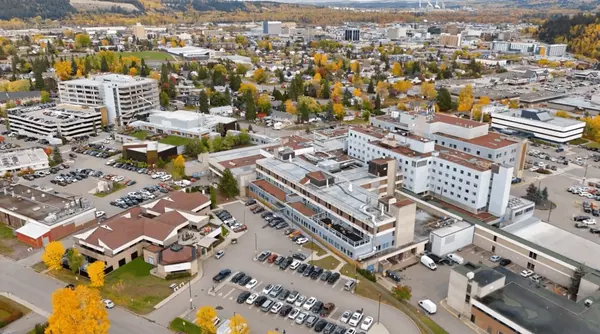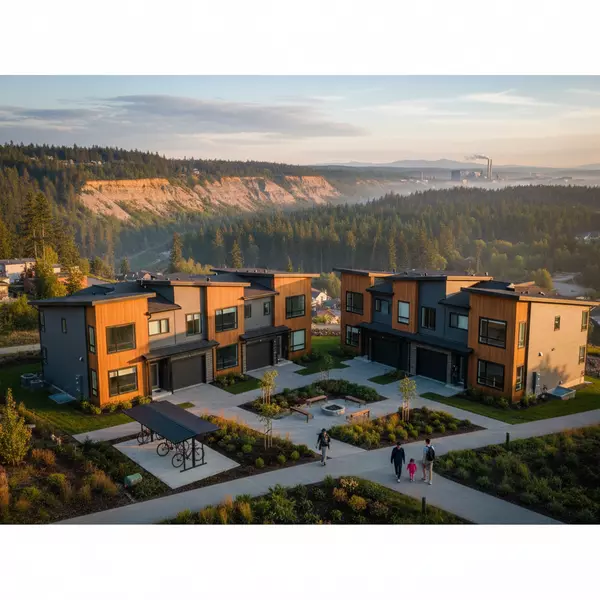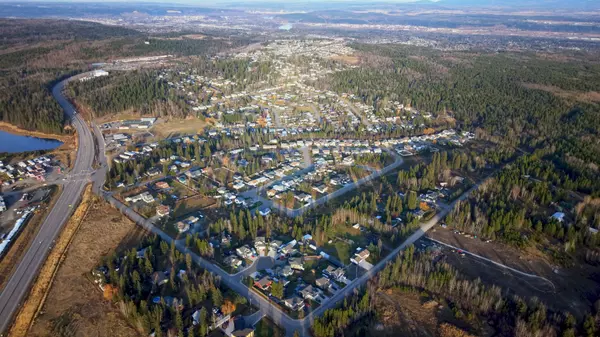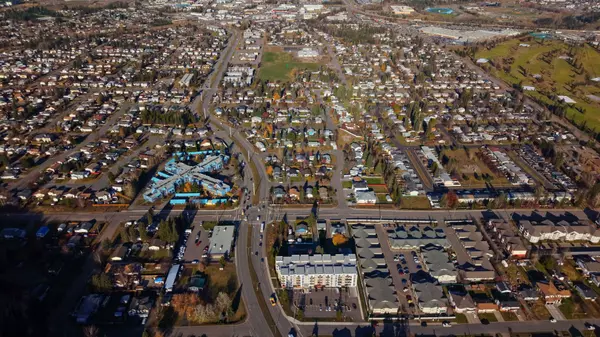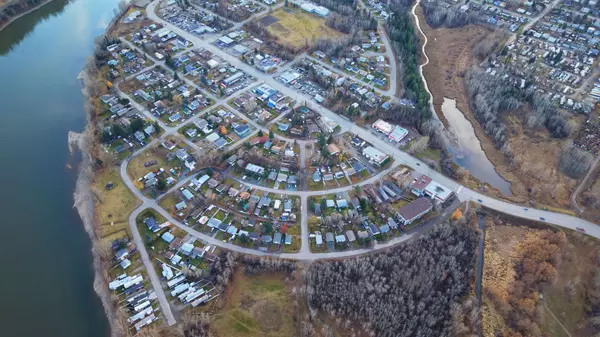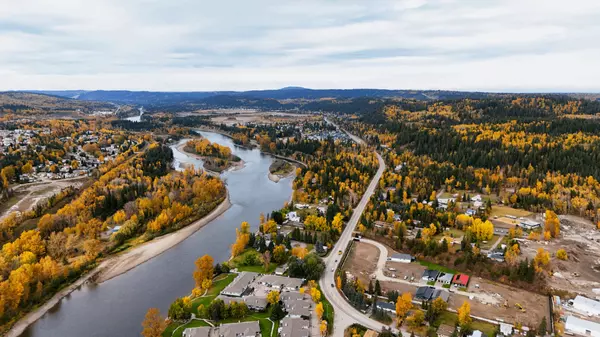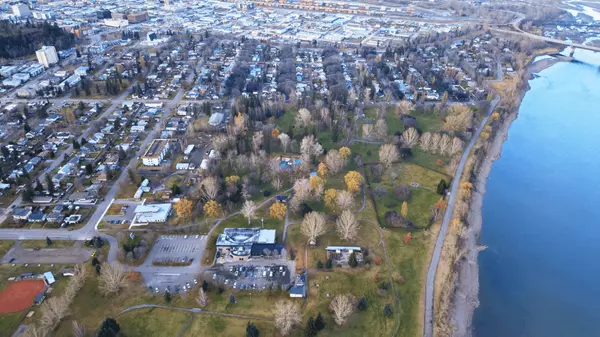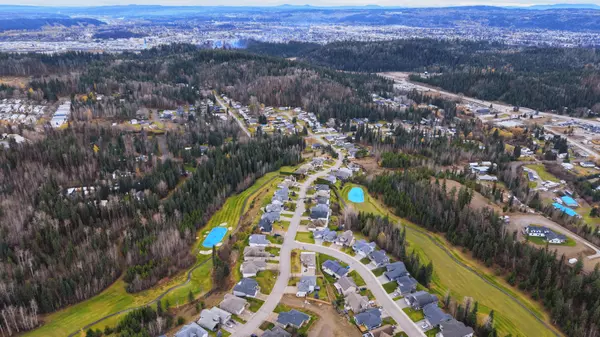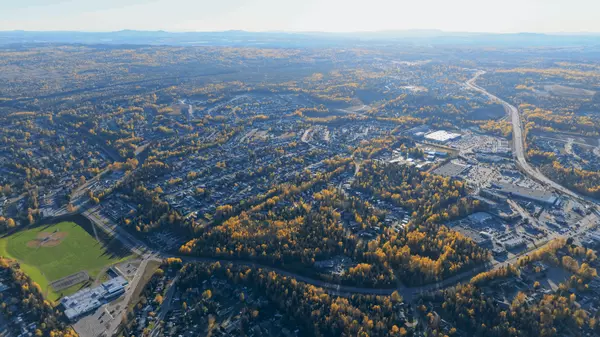Lakeside Living Near Prince George: How Ness Lake BC Delivers Lifestyle & What the 35 km Commute Means
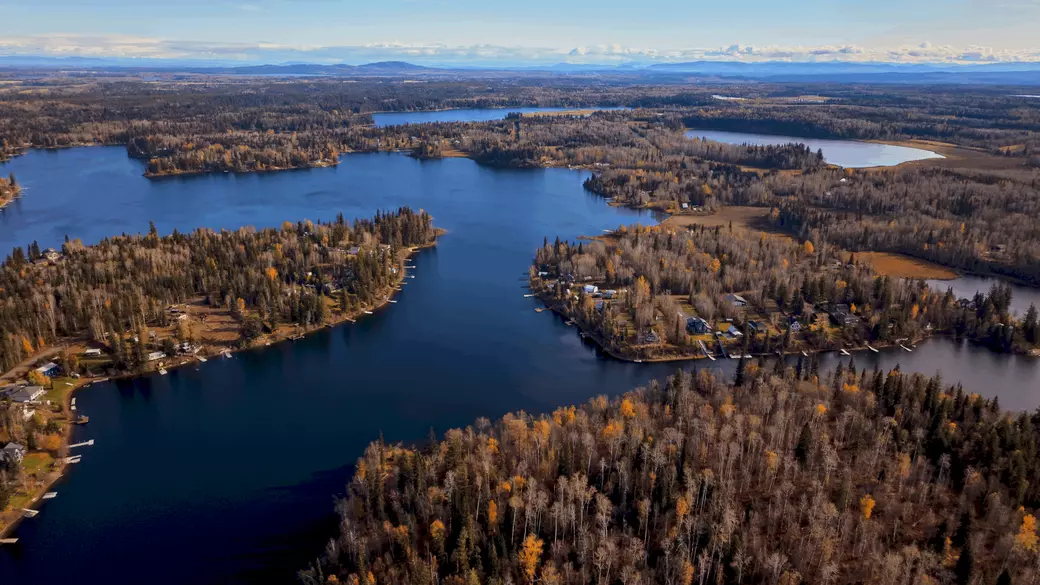
So, you’re thinking about trading downtown convenience for forest views and lakeside mornings?
Maybe you’ve got your eye on a quiet property out at Ness Lake, but you're wondering if that 35 km commute into Prince George is going to be a dealbreaker.
Let’s dive into what makes Ness Lake such a compelling place to live—and whether the trade-off is really worth it. I’ll break it down based on lifestyle, commute logistics, real estate responsibilities, and long-term value.
1. Embracing the Lakeside Lifestyle
Living at Ness Lake isn’t just about owning a house—it’s about building a lifestyle around nature, space, and peace. Here’s what draws people to the area:
- Year-round recreation: Swim, kayak, or fish for rainbow and brook trout in the summer. Ice fish or snowshoe in the winter. This isn’t weekend cottage life—it’s your new backyard.
- Ness Lake Regional Park: A 34-acre regional park with public lake access, picnic sites, a 1.2 km walking trail, and one of the few places where you can launch a boat in the region.
- Low traffic, low stress: Unlike city parks, the angler traffic here is low-to-moderate year-round.
- Tight-knit family vibe: Census data shows higher-than-average youth populations, making it a great fit for families with kids.
In short, if you’re craving elbow room and nature over city noise and streetlights—Ness Lake delivers.
Deep Dive
When someone considers making the move to Ness Lake, they’re rarely just talking about the house. What draws people out here is the opportunity to build a life around peace, nature, and space. Ness Lake isn’t simply a location—it’s a lifestyle. For those who crave tranquility over traffic, and starry nights over streetlights, this lakeside community offers something the city can’t match.
Recreation here isn’t something you pack a bag for. It’s something you step out your front door into. In the summer, residents swim, kayak, and fish right on the lake. Ness Lake is known for being stocked with Rainbow and Brook Trout—some growing as large as 6+ pounds. Evenings often involve a peaceful paddleboard session, while winter brings ice fishing, skating, and snowshoeing right in your backyard. The nearby Regional Park offers a well-maintained 1.2-kilometre loop trail, perfect for family walks, morning jogs, or nature photography in all seasons.
What’s equally appealing is the calm, respectful vibe around the lake. While many BC lakes get overcrowded in peak season, Ness Lake remains low-traffic and community-oriented. There are no party boats shaking the shoreline or busy boat launches with long waits. This is a quieter, more respectful kind of lake culture—ideal for families, retirees, or anyone who values nature for what it is.
Data from the 2021 Census backs up what many locals already know: Ness Lake is a true family community. With a higher-than-average percentage of children aged 0–14 compared to the national average, it’s clear this is a place where families put down roots. The properties here are spacious—often with acreage—which gives kids the kind of outdoor freedom many parents grew up with but is harder to find in today’s urban settings. Whether it’s riding bikes on quiet roads, building forts in the woods, or skating on the lake in winter, the environment naturally supports a wholesome, active lifestyle for kids.
Privacy is another huge benefit. Unlike subdivisions in town where you can see directly into your neighbor’s kitchen, homes around Ness Lake are well-spaced and surrounded by natural buffers like trees or water. You can stargaze, relax in a hammock, or host a backyard fire without ever feeling like you’re on display. It's the kind of solitude that’s become increasingly rare—and deeply valuable.
Ultimately, Ness Lake offers more than just a beautiful view. It gives people the space—both mental and physical—to breathe. For some, that means working remotely in a peaceful setting. For others, it's a chance to reset from the chaos of city life, to raise kids close to nature, or simply to slow down and enjoy life’s quieter moments. If you’re the type of person who values quality of life over proximity to a shopping mall, Ness Lake might be exactly where you belong.
2. The Reality of the 35 km Commute
Now for the part everyone asks about: the drive.
- Distance & Time: Expect a 30 to 40-minute one-way drive to downtown Prince George, depending on where exactly you live on the lake. Add time during snow season.
- Route: Chief Lake Road is the main artery in and out. It connects to Hwy 97 and into Prince George’s Hart and Spruceland areas.
- Zero public transit: If you’re moving here, you need a vehicle—preferably one with winter tires and good fuel economy.
- Hidden costs: More driving = more wear and tear, fuel, insurance. These costs can quietly chip away at the savings you might have gained by buying outside city limits.
But here’s the thing: for many residents, the peace and privacy far outweigh the gas bills.
Deep Dive
Let’s be honest—when most people hear “35 kilometers from town,” they immediately picture a soul-crushing drive through the middle of nowhere. But that’s not the case with Ness Lake. While it's definitely rural, the commute into Prince George is smoother than most people expect—especially once you understand what it involves and how locals make it work.
On average, you're looking at a 30 to 40-minute drive, one way, into the Prince George city core. This isn’t bumper-to-bumper gridlock like you’d see in the Lower Mainland or on the Coquihalla. It’s a relatively easy flow of traffic that starts on Chief Lake Road, cuts through Highway 97, and brings you into the Hart or downtown in a straight shot. If you time it right—leaving before 8 a.m. or after 9—you’ll likely avoid any school or rush-hour slowdowns altogether.
That said, this is northern BC, and the winters are no joke. If you're planning to move out here, you need to have a reliable vehicle—ideally with good tires, all-wheel drive, and a remote start. You'll also want to budget a bit more time during the snow season, especially after heavy storms or freeze-thaw cycles that can make rural roads slick. But for most residents, this becomes part of the rhythm. It's less of a daily annoyance and more of a natural part of living in a rural paradise.
What does take people by surprise, though, are the hidden costs of commuting. It’s not just about the fuel. There’s also the ongoing wear and tear on your vehicle, plus the need for regular maintenance, oil changes, and winter readiness. Over the course of a year, that extra 60 to 70 kilometers a day adds up—not just in mileage, but in budgeting. People often overlook this part when comparing home prices between the city and lakeside areas, but it’s crucial if you want to make a fully informed decision.
One non-negotiable? You must own a vehicle. Public transit doesn’t run out to Ness Lake, and even walkability is nearly nonexistent. There's no sidewalk infrastructure, and homes are spread out over wide rural roads. Your vehicle isn’t just your commute tool—it’s your lifeline to groceries, school, medical appointments, and community events. If your household has multiple working adults or school-aged children, plan accordingly.
Still, many residents feel that the benefits of the lifestyle far outweigh the inconvenience of the drive. They make the most of their commute by listening to audiobooks or using that quiet road time to mentally gear up for the day. Some work hybrid or remote jobs, coming into town only a few days per week. Others batch errands strategically—stacking appointments, grocery runs, and school drop-offs into efficient blocks.
It really comes down to mindset. If you're someone who sees commuting as dead time, it may feel like a sacrifice. But if you're the kind of person who values nature, space, and serenity, then 35 kilometers is just the price of admission—and for many, it's a price they’d pay again in a heartbeat.
3. Ownership and Maintenance Responsibilities
Living lakeside is not like owning a house in town. Here's what you need to prepare for:
- Private utilities: Every property runs on a private well and septic system. That means no city water, no sewer hookup. You’re the boss of your own infrastructure.
- Due diligence is non-negotiable: Before buying, budget for inspections of your well (flow rate, potability) and septic (pumping, age, condition).
- Higher insurance premiums: Homes in Ness Lake are protected by a Volunteer Fire Department (VFD), which may increase your fire insurance rates.
- Seasonal property maintenance: Long driveways need plowing. Forested lots need fire-smarting. Septic needs pumping. These are added time and cost factors to consider.
Bottom line: rural living comes with more responsibility—but it also comes with more freedom.
Deep Dive
Owning a home at Ness Lake isn’t just about enjoying the view—it’s about being responsible for everything that makes that lifestyle possible. Unlike city properties where services are handed to you on a silver platter—water, sewer, garbage pickup, municipal snow removal—life out at the lake requires more independence and proactive maintenance. If you’ve never lived on a rural property before, this part of the decision is just as important as the commute or the price tag.
Let’s start with utilities. Every home in Ness Lake runs on private systems. That means a well for your water and a septic system or sewage holding tank for your waste. There’s no hooking into the city’s water lines or sewer mains. You are, quite literally, your own utility provider. This comes with both freedom and responsibility. On the one hand, you’re not paying a monthly utility bill to the city. But on the other hand, you’re 100% in charge of maintaining these systems, and if something goes wrong, it's on you to fix it—and pay for it.
Before buying, you’ll want to do thorough due diligence. A professional well inspection is a must. That includes testing the water quality, flow rate, and depth. You don’t want to find out after you move in that your water has a sulfur smell or that the flow isn’t strong enough to run a shower and a dishwasher at the same time. The septic system also needs to be pumped and inspected to confirm it’s functioning properly. A failed septic field isn’t just expensive—it can be a serious health hazard.
Another rural reality is fire protection. Ness Lake is covered by the Volunteer Fire Department, not a full-time municipal fire crew. While these volunteer teams are trained and dedicated, insurance companies often see VFD coverage as a higher risk. That means you could be looking at higher home insurance premiums, simply because response times may be longer or equipment may not be as extensive as urban fire departments. It’s not something that should scare you away—but it’s something you should absolutely factor into your budget.
Then there’s seasonal maintenance, which often gets overlooked in city-centric home buying guides. In winter, you’ll need to clear your own driveway. That might mean investing in a snow blower or paying for a snow removal service, especially if your driveway is long or steep. In the summer, acreage owners deal with brush clearing, lawn maintenance, and sometimes wildfire prevention measures like creating defensible space. If you’ve got a wood stove or fireplace, add regular chimney sweeping to the list.
One more important note: these systems don’t just need fixing when they break—they need ongoing maintenance to keep them running. Septic tanks need to be pumped every 3–5 years. Well systems may need filters, treatment systems, or pump replacements over time. For many homeowners at Ness Lake, these tasks just become part of the lifestyle. But for others—especially folks used to city convenience—it can be a bit of a wake-up call.
That said, the trade-off is worth it for those who crave independence. You’re not relying on aging city infrastructure. You’re not impacted by municipal rate hikes. And you’re not sharing walls, fences, or sidewalks with anyone unless you want to. For the right buyer, being in charge of your own systems is part of the pride of ownership, not a burden.
So, if you’re thinking about buying at Ness Lake, my best advice is to be ready to lean into the maintenance mindset. Think of it like owning a cabin—but living there full-time. With the right preparation and budgeting, owning a rural home here can be one of the most rewarding experiences, both financially and personally.
4. Price and Value Proposition
So what’s the financial case for moving to Ness Lake?
- Bigger bang for your buck: Compared to similar homes in Prince George’s core, Ness Lake homes often offer larger lots, lake access or views, and more privacy for a similar price.
- Inventory mix: You'll find everything from raw land for custom builds to luxury waterfront cabins and modest year-round homes.
- Long-term value: With strict limitations on urban sprawl under Prince George’s 2025 Official Community Plan, areas like Ness Lake are protected from overdevelopment—which helps preserve property value.
For lifestyle buyers, the ROI here is measured more in mental health and lake views than resale flip potential.
Deep Dive
Let’s talk about the numbers, because lifestyle aside, real estate is still an investment—and Ness Lake offers some unique financial dynamics that make it especially attractive to the right kind of buyer.
First off, you get more house for your money out here. Compared to in-town neighborhoods like Heritage or College Heights, homes at Ness Lake often sit on larger lots—sometimes full acreage—and many come with features you simply won’t find in the city: private lake access, panoramic water views, multi-bay garages, detached shops, or room to build a guest cabin or Airbnb suite. When you compare cost per square foot, the value proposition leans heavily in favor of the lake.
In fact, if you’re looking at a mid-range detached home in Prince George with a standard yard, you could often find a similar—or even lower—price tag on a home at Ness Lake with twice the land and a lake in your backyard. For buyers who prioritize space, privacy, or nature over proximity to a Starbucks, this is a pretty compelling trade.
The inventory mix is also diverse. You’ll find everything from modest three-bedroom homes perfect for first-time buyers, to custom lakefront estates, to bare land lots where you can design and build your own dream cabin from scratch. This makes Ness Lake accessible to a wide range of buyers—whether you’re upsizing, downsizing, or investing in a vacation rental or retirement home.
What’s important to understand, though, is where the long-term value comes from. You're not betting on rapid urban appreciation here. Instead, you're buying into a lifestyle that holds its value precisely because it’s rare—and protected. The City of Prince George’s Official Community Plan (OCP), updated in 2025, made a clear statement: infrastructure expansion will focus inside the existing urban boundary, not out in rural areas like Ness Lake. That means you’re not going to see high-density housing, major retail developments, or commercial sprawl taking over the area anytime soon.
In real estate terms, that kind of planning decision preserves scarcity and demand. It effectively locks Ness Lake into a semi-rural identity for the foreseeable future—keeping the lakeside vibe intact and shielding your investment from being devalued by overdevelopment.
Now, does that mean prices will skyrocket here? Not necessarily. But it does mean that well-maintained, turn-key homes on or near the lake will continue to hold strong value over time—especially as more people exit crowded city centers in search of quieter, more nature-oriented living.
Another consideration? Rental and Airbnb potential. While zoning and licensing always need to be verified, many buyers see Ness Lake as a double win: a personal getaway spot that can also generate short-term income during the months they aren’t using it. And with Prince George being a hub for industry, education, and healthcare, there’s a steady stream of short-term tenants looking for quiet, high-quality accommodations.
Bottom line? Buying at Ness Lake isn’t just a lifestyle decision—it’s a strategic one. You’re not just purchasing a home. You’re investing in peace, space, and a kind of long-term value that isn’t easily disrupted by market noise or urban trends. If you buy smart, budget properly for rural ownership, and take care of your property, Ness Lake can be one of the most rewarding places to own real estate in the Prince George region.
5. Making the Decision: Is It Worth the Drive?
Ask any of the families who’ve made the move, and here’s what they’ll tell you:
- Yes—if you're prepared. The commute is a commitment. But those who choose Ness Lake usually know exactly what they’re signing up for—and they love it.
- Yes—if you want your kids to grow up in nature. With a family-heavy demographic and safe streets, it’s a strong choice for raising children.
- Yes—if you value space and peace over proximity. This isn’t suburbia. It’s the kind of place where you’ll see stars at night and hear loons in the morning.
Deep Dive
So, let’s bring it all together. You've read about the natural beauty, the family-friendly vibe, the maintenance realities, and the financial upsides. But at the end of the day, it all comes down to a simple but deeply personal question: Is a 30–40 minute commute worth living at Ness Lake?
For many people, the answer is a resounding yes—but it’s not automatic. It depends on how you value your time, your peace, your space, and your lifestyle goals. If you’re someone who thrives on convenience, wants to walk to cafes, and prefers Uber Eats over outdoor adventure, then yes, that commute will feel like a chore. But if you’re the kind of person who sees that drive as a transition from work to rest, or from busyness to nature, then it’s less of a burden and more of a blessing.
Let’s be real—commuting from Ness Lake requires a mindset shift. You need to think ahead, plan your errands, and be okay with not popping into town on a whim. That means loading up on groceries in one trip, timing school pickups with work meetings, and maybe even remote-working a couple of days a week to balance it out. But if you can dial in those logistics, what you get in return is unmatched: quiet mornings, starry nights, and a lake view that doesn't cost millions.
It’s also important to know that you won’t be alone in making it work. Many of your potential neighbors at Ness Lake are already doing the same thing—driving into Prince George for work, school, shopping, and activities, then returning home to peace and privacy. There’s a sense of camaraderie among those who choose this lifestyle. It’s not just about living outside of town—it’s about intentionally choosing a slower, simpler, more grounded way of life.
The kind of people who thrive at Ness Lake tend to be those who are ready to trade hustle for headspace. They value the outdoors, the connection to nature, and the ability to create a home that truly feels like a sanctuary. Whether you’re raising a family, working from home, downsizing for retirement, or just looking for more quality in your daily life, Ness Lake offers something special—a daily reminder that you don’t need to live in the middle of everything to feel like you’ve got it all.
And sure, the commute adds some complexity to the equation. But when you weigh that against waking up to birds instead of traffic, watching your kids play in the woods instead of on a sidewalk, or winding down your evening with a lakeside sunset—it starts to look less like a trade-off, and more like an upgrade.
In the end, this decision isn’t about real estate alone. It’s about lifestyle design. It’s about asking yourself:
What kind of life do I actually want to build?
What do I want to come home to every day?
If your answer is space, serenity, and a deeper connection to nature—then yes, the drive is more than worth it.
Final Thoughts
Ness Lake isn’t for everyone—and that’s kind of the point. But for those who are ready to take on the rural responsibilities in exchange for a front-row seat to BC’s natural beauty, it’s hard to beat.
If you’re thinking of making a move to Ness Lake or exploring rural options near Prince George, I’d love to walk you through the process. From due diligence on wells and septic to commute planning and lifestyle fit, I’m here to help you buy with confidence.
Categories
Recent Posts
